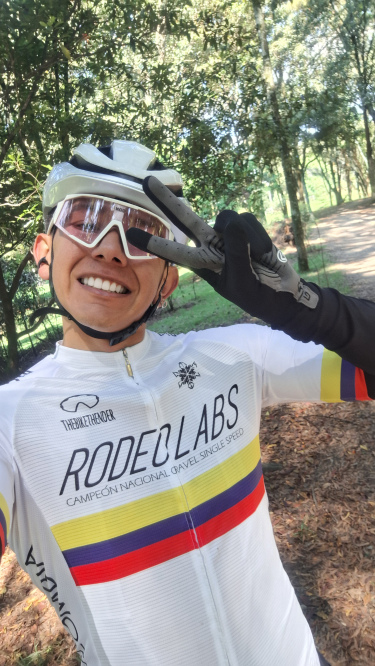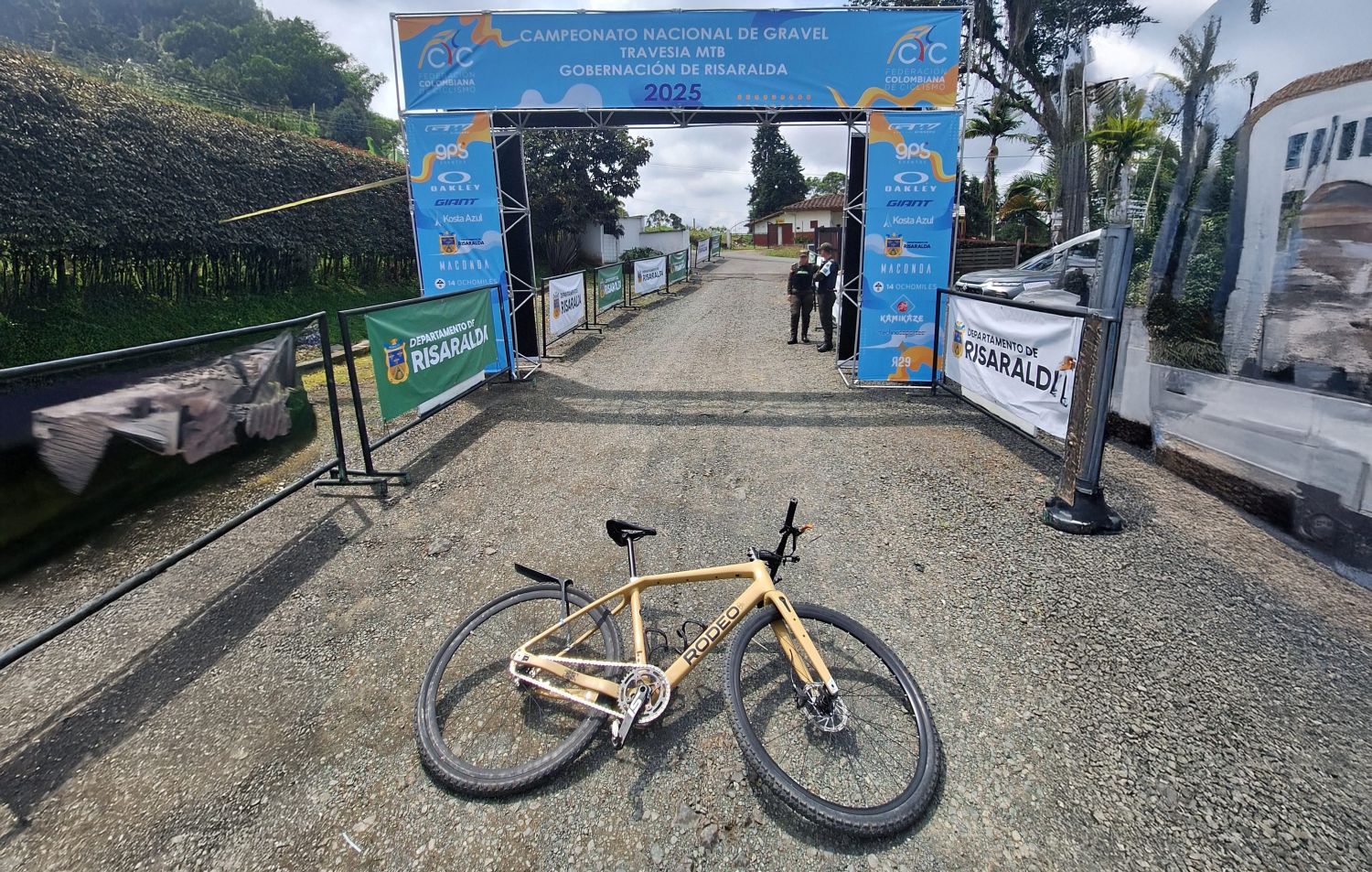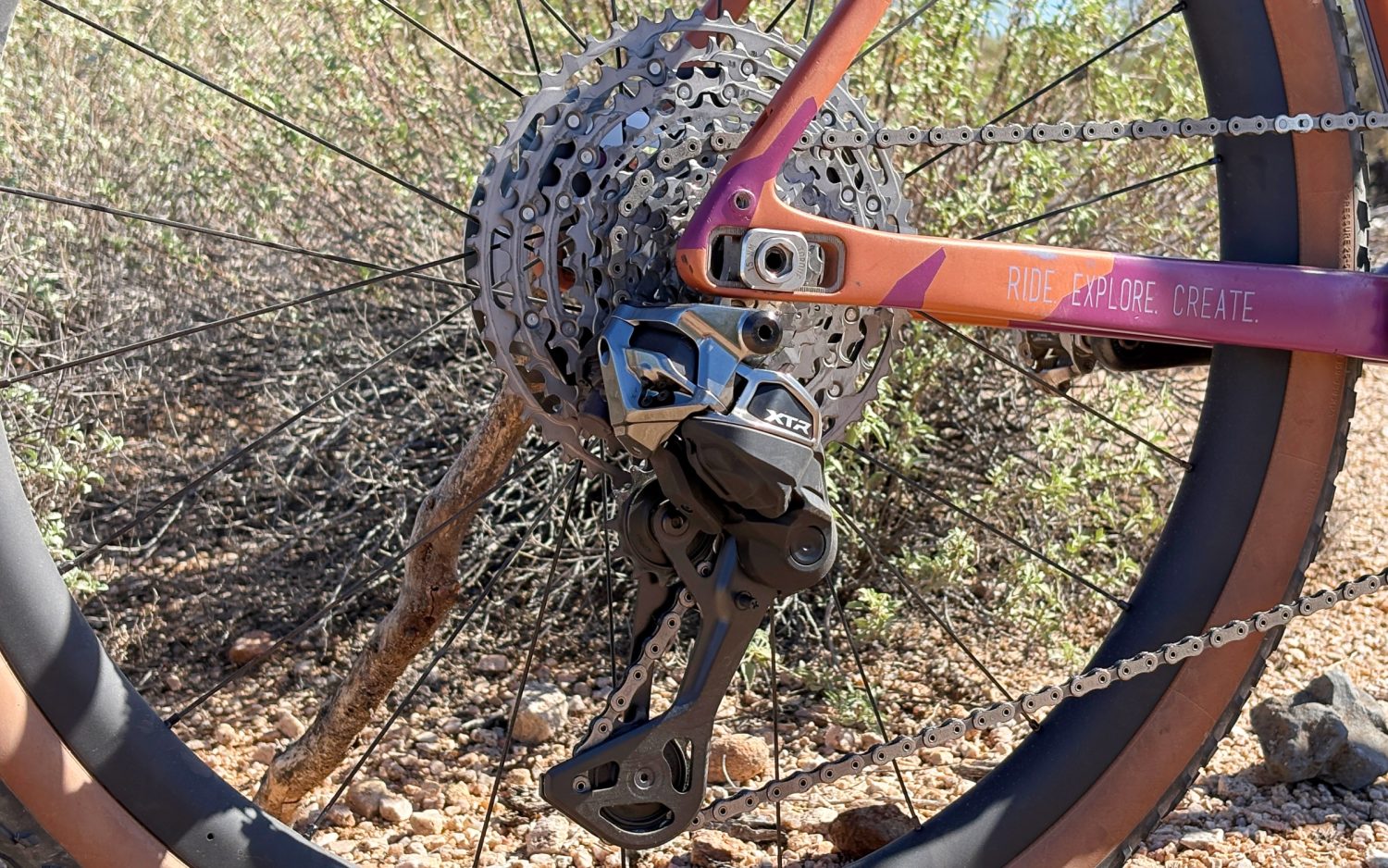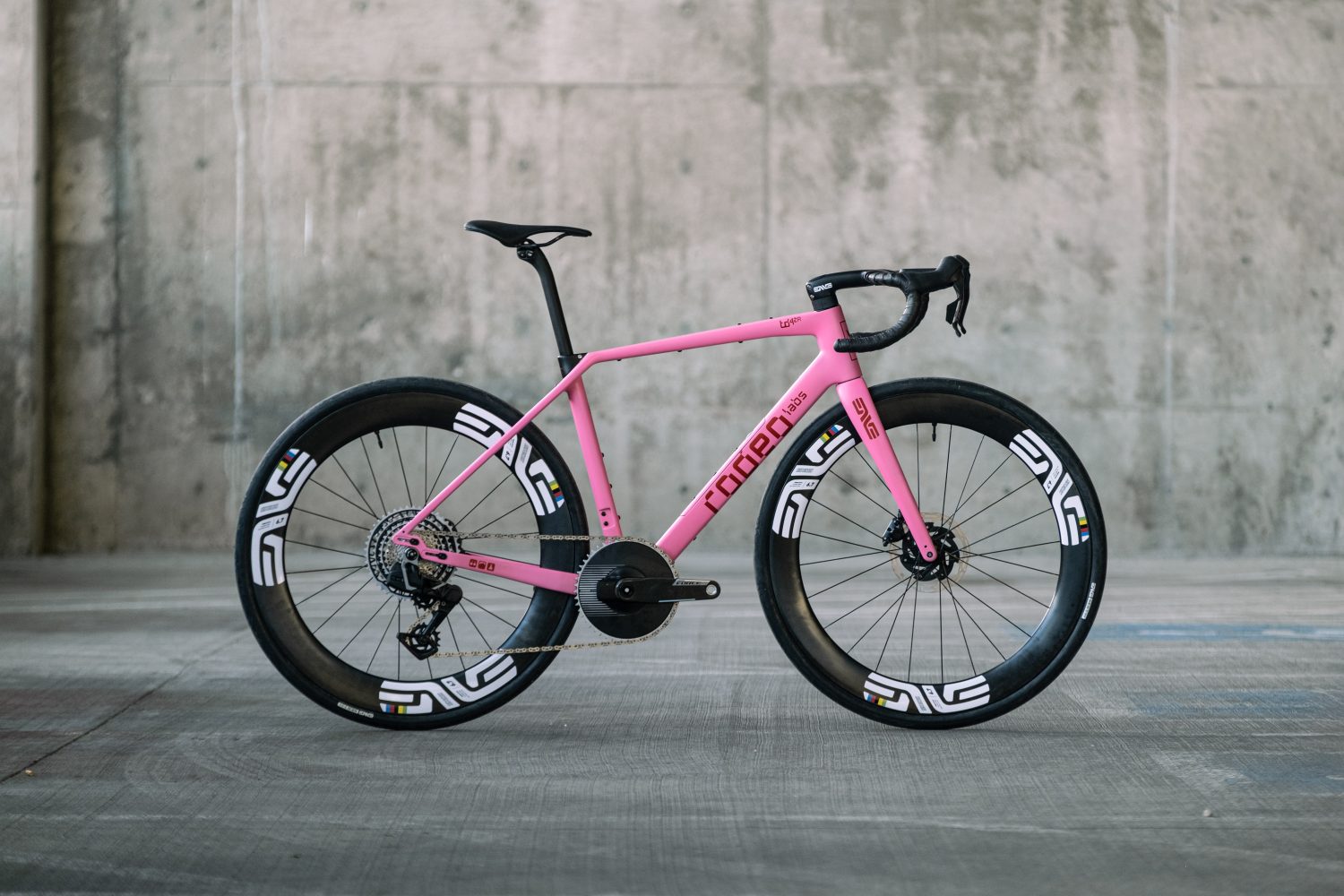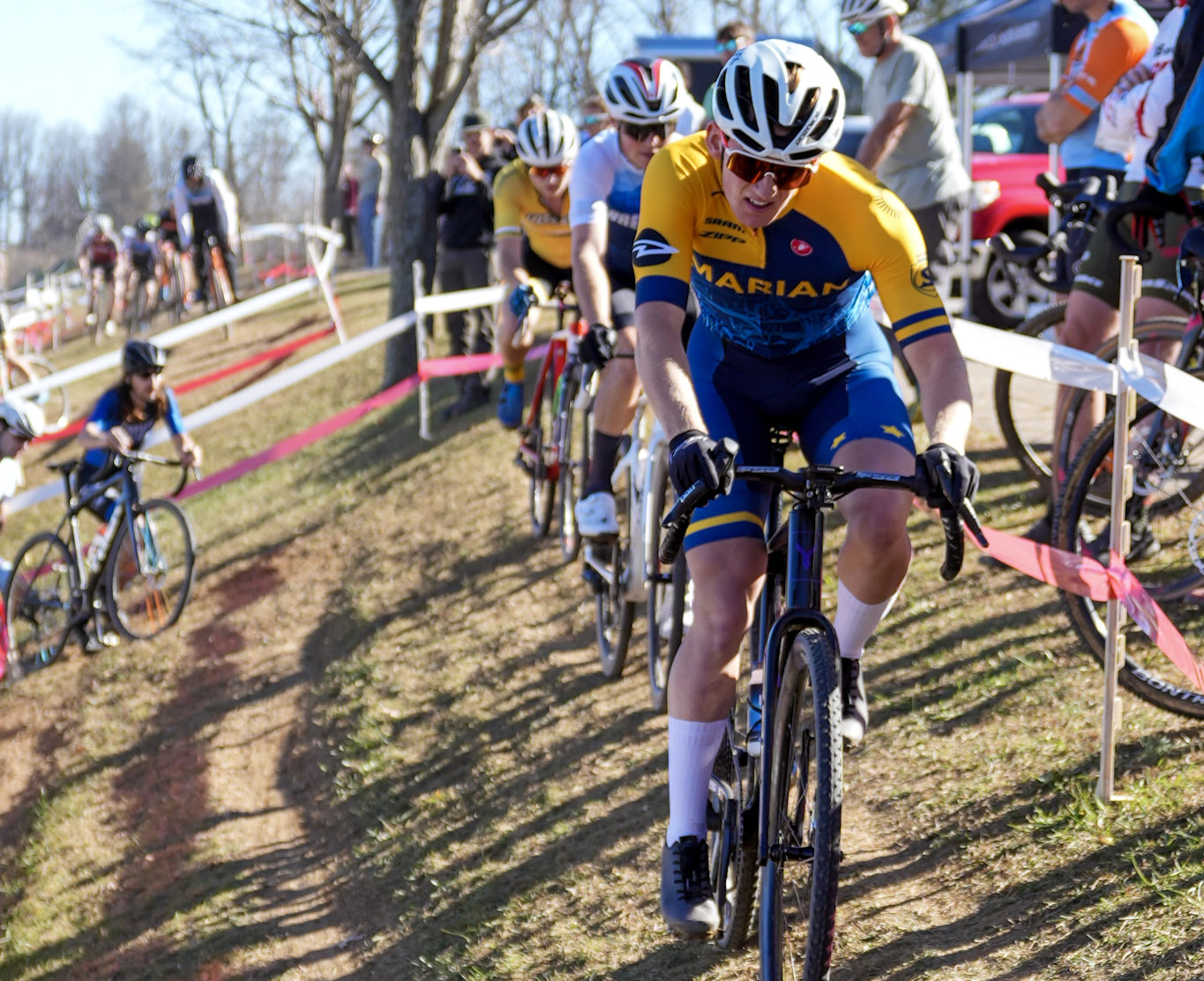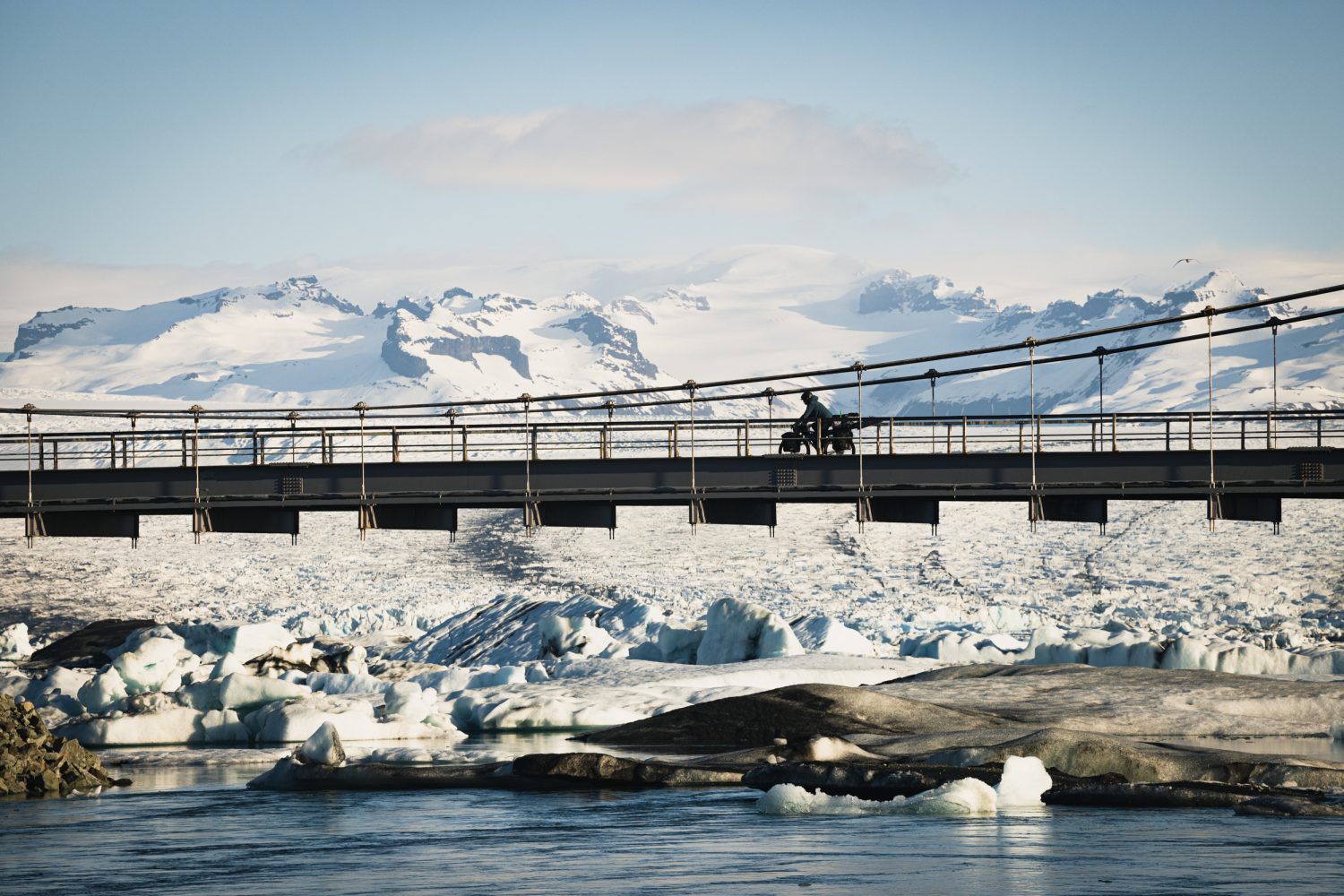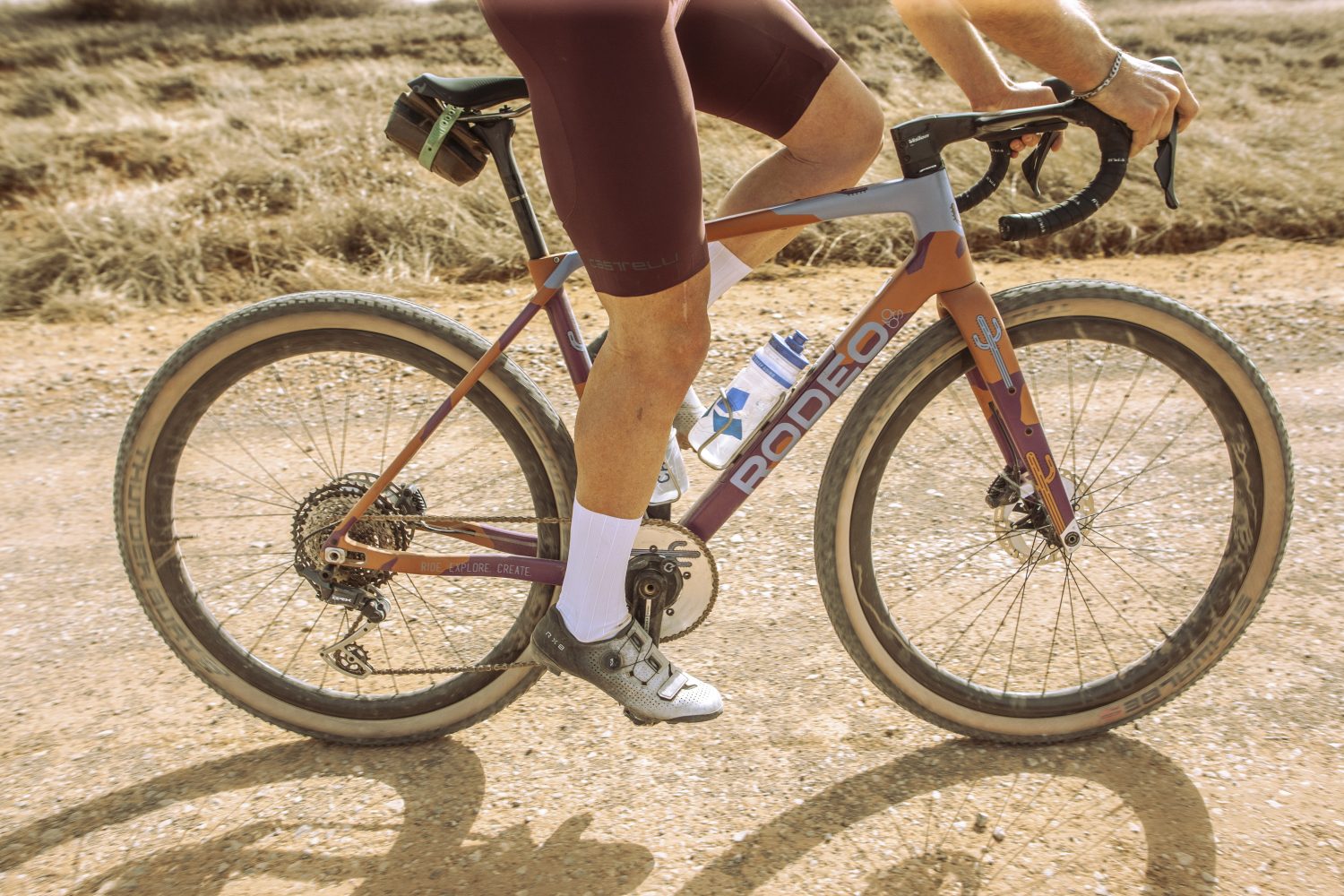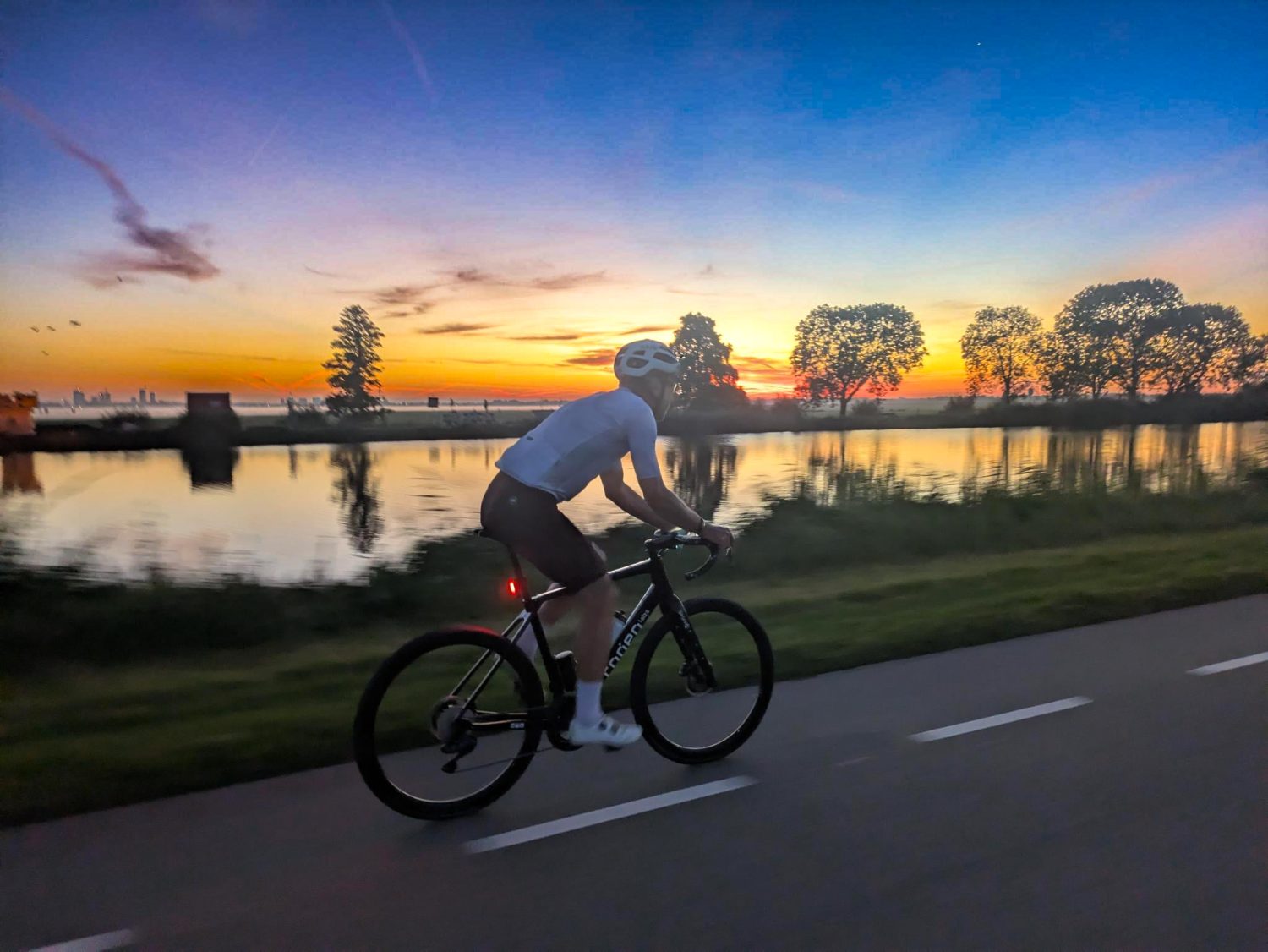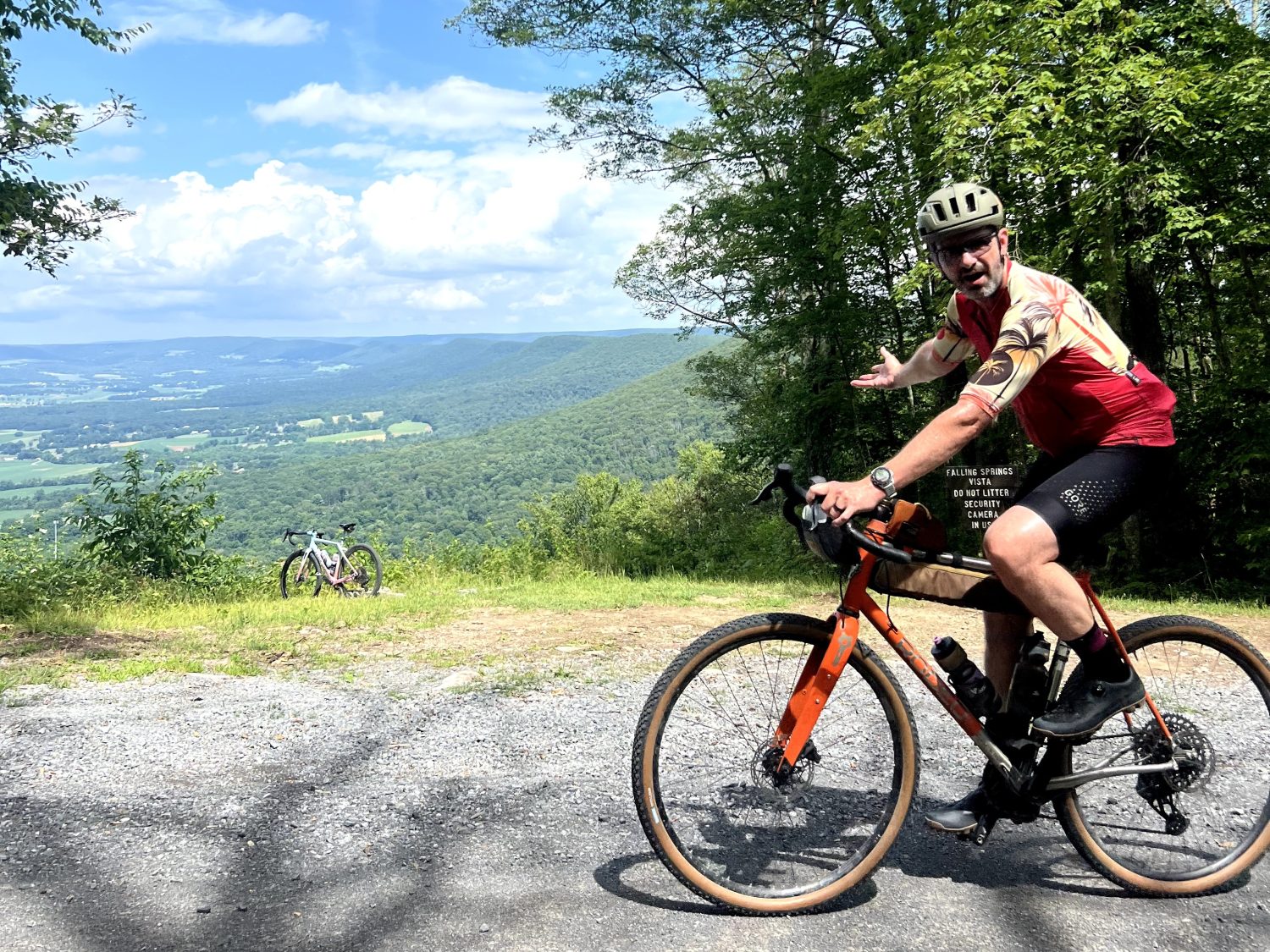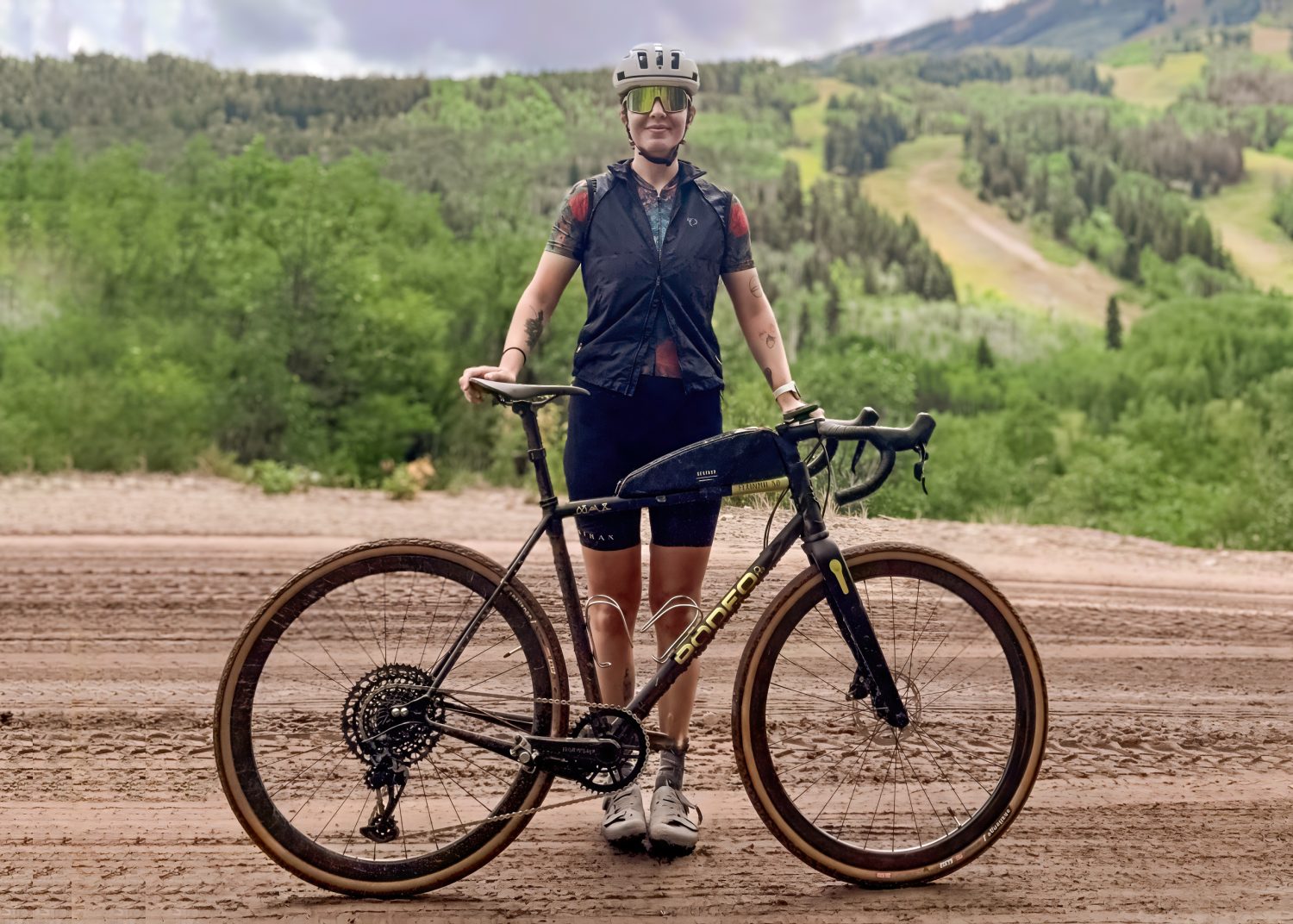Campeonato Nacional de Gravel Colombiano en piñón fijo: una locura hermosa
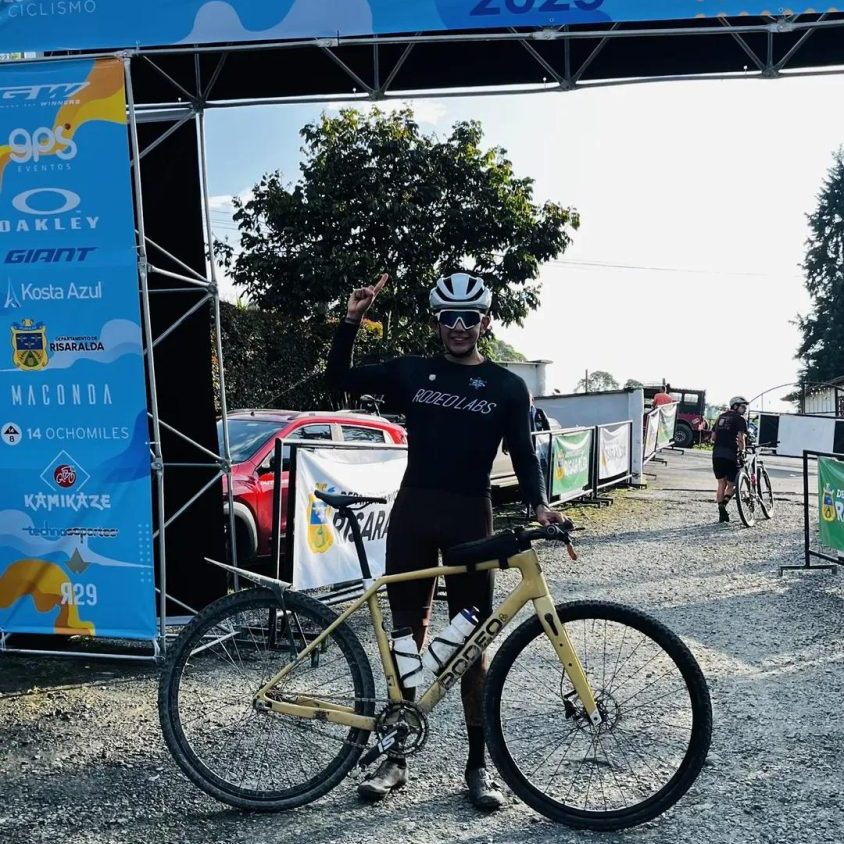
Decir que corrí un Campeonato Nacional de Gravel en piñón fijo suena raro. Suena loco y sí… fue exactamente eso: una locura. Pero también fue algo histórico, algo que nunca había pasado antes y algo que me voy a llevar para siempre en la memoria.
Santa Rosa de Cabal fue el escenario. Un lugar que no conocía y que terminó abrazándome con cafetales infinitos, café del bueno, chorizos santarrosanos legendarios y, sobre todo, con gente increíblemente amable. Desde el primer momento se sentía una energía distinta: organización impecable, corredores felices, voluntarios motivados y público apoyando como si fuera una fiesta del pueblo.
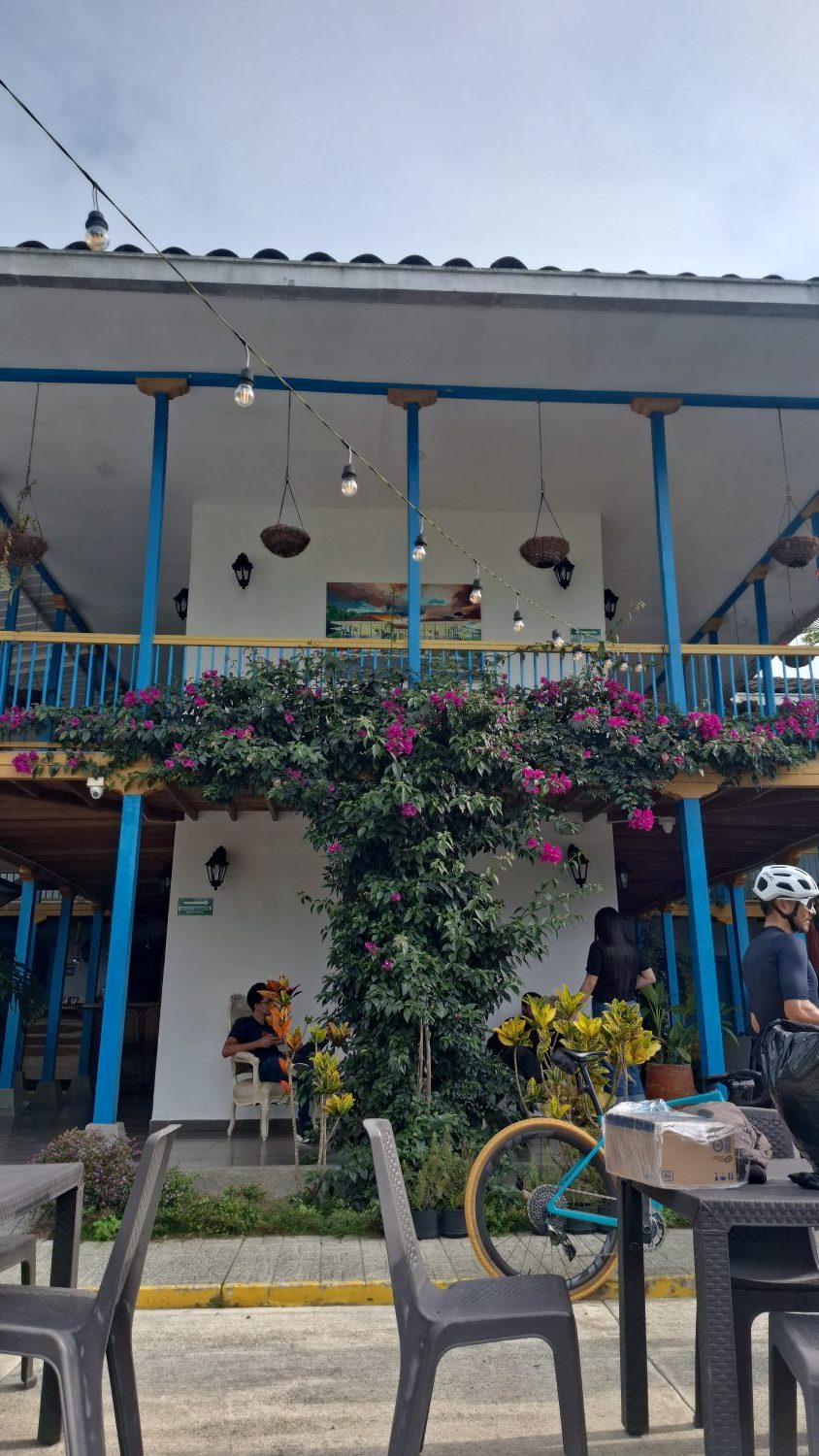
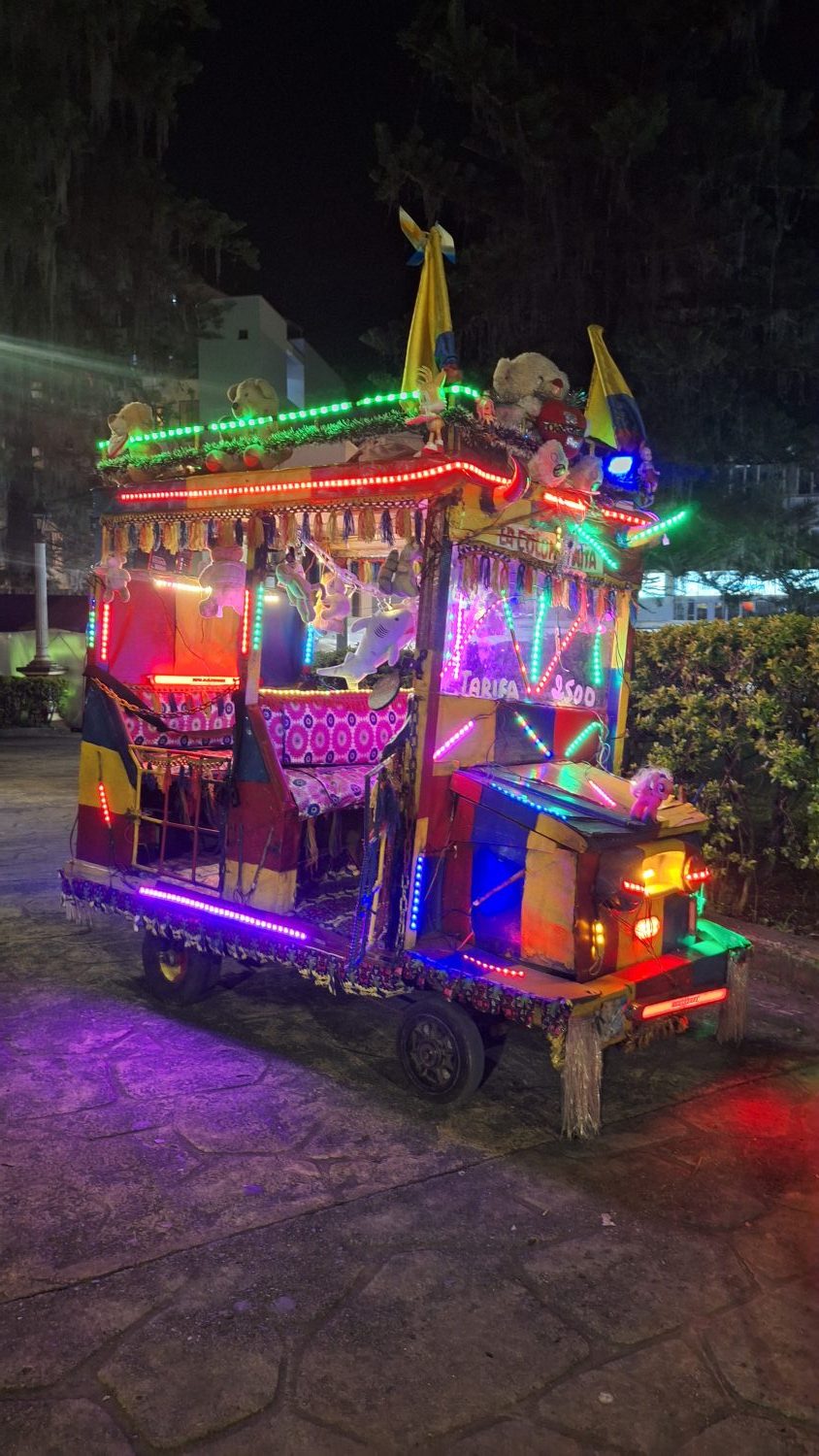
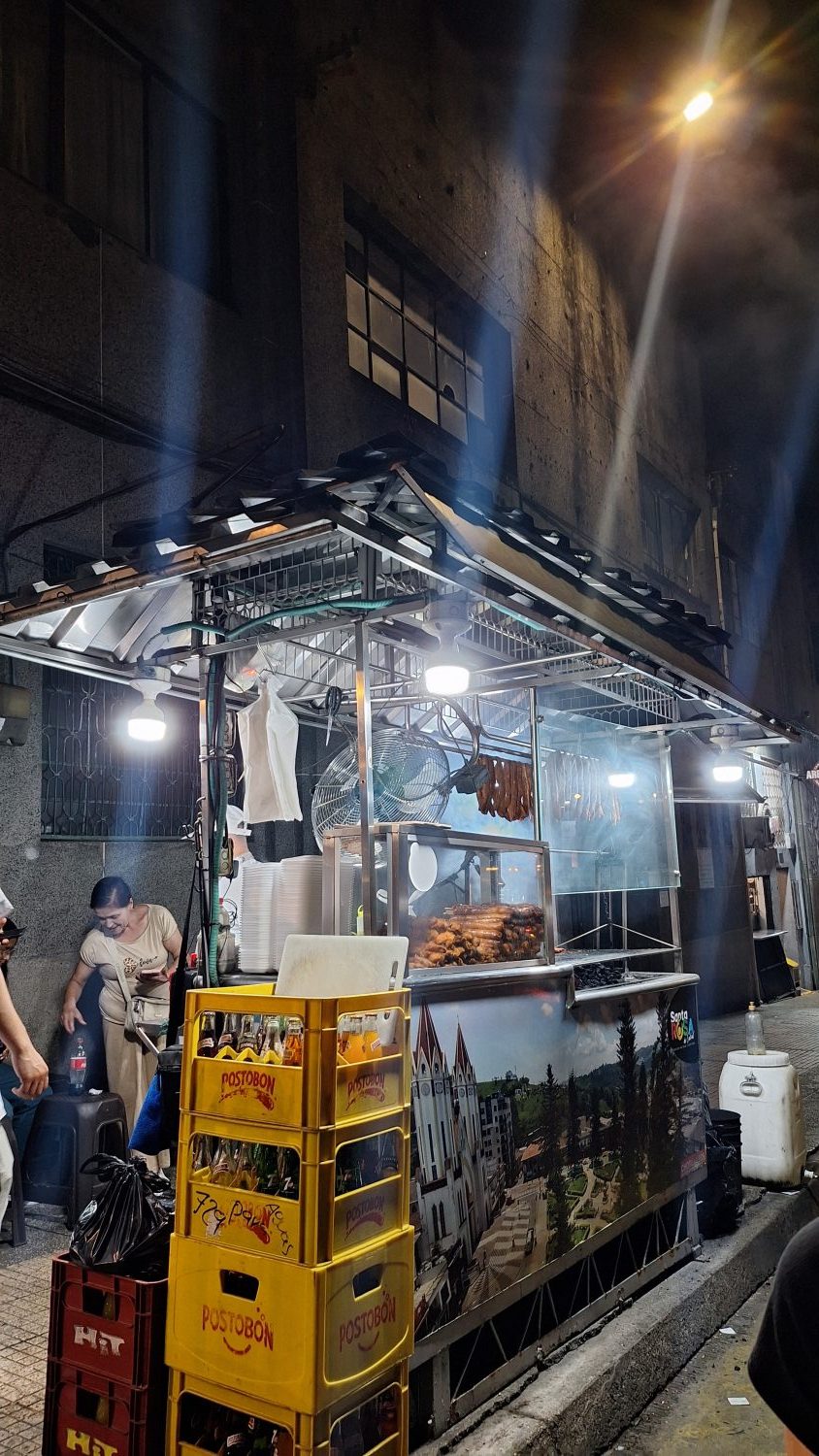
El recorrido no daba tregua, grava brutal, subidas constantes, repechos sin fin, bajadas técnicas y unas vistas que te hacían olvidar por segundos que estabas compitiendo: montañas verdes, fincas cafeteras, caminos que parecían sacados de una postal. Pero eso duraba poco… porque las piernas y el piñón fijo te traían de vuelta a la realidad.
El problema mecánico que lo cambió todo
En el kilómetro 20, después de una bajada con bastante piedra suelta y bastante peligrosa, pasó lo impensable, las pastillas del freno auxiliar literalmente se estallaron y, al mismo tiempo, el disco delantero quedó frenado. De un momento a otro, la carrera se volvió mucho más complicada.
Desde ahí tocó asumirlo: iba a ser piñón fijo puro, sin freno auxiliar, en un recorrido lleno de bajadas técnica, bajar en piñón fijo no es cualquier cosa. No es solo “no frenar”: es controlar la velocidad con las piernas, anticipar cada curva, dosificar la cadencia, elegir líneas perfectas y confiar en que tu cuerpo aguante. En las subidas iba frenado por el disco, y en las bajadas iba sin apoyo. Era una contradicción permanente: sufrir subiendo y sobrevivir bajando.
Fue una carrera extremadamente técnica, más mental que física en muchos tramos.
La pinchada… y la segunda pinchada
Entre el kilómetro 60 y 70 llegó otro capítulo: pinchazo. Por fortuna, no perdí mucho tiempo porque justo iba pasando Juliana Santini, que con una generosidad gigante me regaló un neumático. Gracias a eso pude despinchar rápido y volver a carrera.
Aproveché ese momento para hacer algo clave: saqué la rueda y con las mismas palas con las que estaba despinchando, abrí las mordazas del disco delantero. Eso permitió que el disco dejara de ir frenado y me quitó, al menos en parte, esa dificultad mecánica que venía arrastrando desde el kilómetro 20.
Pero tres kilómetros después… otra vez. Segunda pinchada.
Ahí ya no había plan B: tocó usar el kit de despinche, hacer una reparación exprés mientras los zancudos me estaban comiendo vivo y seguir adelante como fuera. Literalmente era: arreglar, montar, pedalear y no mirar atrás.
Después vinieron tramos durísimos, técnicos, donde cada metro se sentía ganado a pulso. Caminos rotos, subidas largas, repechos exigentes y la sensación constante de que el cuerpo ya estaba en reserva.
El final: con lo último del tanque
Tras coronar la subida principal, aún quedaba un loop más antes de regresar a Santa Rosa. justo cuando parecía que ya estaba todo hecho… apareció el famoso murito final para llegar al hotel donde estaba la meta.
Llegué con lo último que tenía en el tanque. Sin guardarme nada. Vacío. Pero con una sonrisa enorme, porque sabía que había dado todo.
Más allá de la carrera, lo que queda es la gente. La energía fue espectacular: corredores felices, apoyo constante, sonrisas, buena vibra en cada punto del recorrido. La organización se lució completamente: logística clara, recorrido bien marcado, atención humana y cercana.
Tuve además el honor de conocer a Diana Peñuela, quien venía de ser campeona nacional de ruta y terminó consagrándose también campeona nacional de gravel. Un honor total compartir espacio con alguien así: pura clase, pura buena energía.
Gratitud y orgullo
Nada de esto se logra solo, Detrás de una carrera así hay personas y marcas que creen incluso cuando la idea suena rara, cuando el proyecto parece demasiado distinto, cuando el piñón fijo en gravel todavía no es algo común.
Gracias infinitas a: Grupetta, por la ropa, la comodidad y el respaldo constante, al Bikethender, por los mejores mantenimientos de bici del mundo y un agradecimiento muy especial a Rodeo Labs, que han confiado en mí desde el primer momento. Nunca dudaron de este proyecto, nunca dudaron del piñón fijo, nunca dudaron de que el gravel también podía vivirse de otra forma.
En un mundo donde casi todo va hacia más cambios, más desarrollos y más tecnología, ellos apostaron por algo distinto: por la simplicidad, por la mecánica pura y por la idea de que una bici puede adaptarse a casi cualquier locura si está bien pensada.
Poder correr un Campeonato Nacional de Gravel en piñón fijo no sería posible sin su sistema de sliders. Ese detalle técnico, que para muchos pasa desapercibido, es lo que permite montar single speed o piñón fijo en una verdadera bici de gravel. No es algo común de ver, no es algo estándar, pero es justamente ahí donde está lo brutal y lo novedoso: una bicicleta diseñada para abrir posibilidades y para demostrar que el gravel todavía tiene mucho por descubrir.
Por que en Piñón Fijo?
Competir de esta manera no fue únicamente una apuesta personal.
Fue abrir un camino.
Fue demostrar que el piñón fijo también tiene un lugar en el gravel, incluso en el contexto de un Campeonato Nacional.
Fue asumir el rol de pionero y vivir una experiencia que difícilmente se repetirá en las mismas condiciones.
finalmente si se lo preguntan, sí Soy Campeón Nacional de Gravel en Single Speed de Colombia!!! A partir de hoy, es un honor portar esta bandera y representar a Colombia en esta modalidad. Si las circunstancias lo permiten, el siguiente paso será llevarla también fuera del país y competir en escenarios internacionales con los colores nacionales.
Una locura.
Una aventura.
Una historia que valió cada pedalazo
